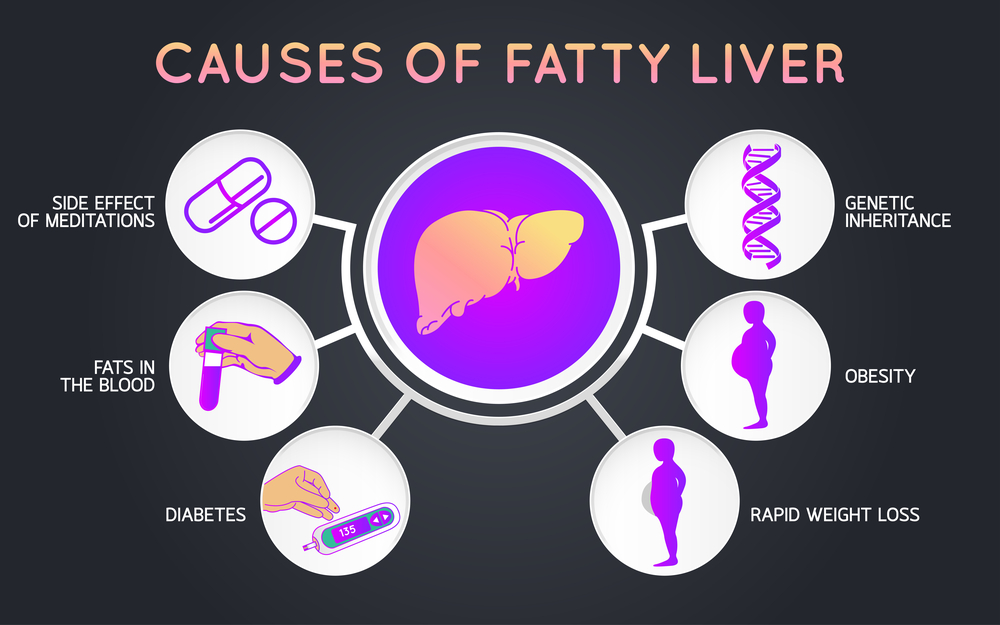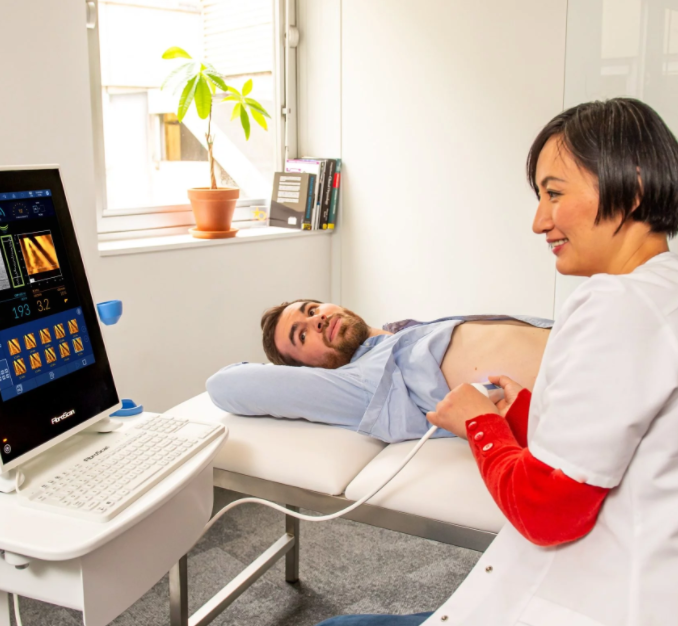Using Fibroscan to Detect Liver Fibrosis in Diabetic Patients

Type 2 diabetics have to be careful to protect their livers. In particular, non-alcoholic fatty liver disease (NAFLD) and advanced fibrosis can cause serious health complications for diabetic patients. Even worse, diabetics are at an increased risk for suffering NAFLD and fibrosis, especially those patients with obesity.
If you are diabetic, what can you do to protect your liver from fibrosis? Fortunately, data shows that advanced screening using FibroScan can help detect these diseases and may lead to earlier treatment options.
What are NAFLD and Liver Fibrosis?
According to the Mayo Clinic, NAFLD is an umbrella term that is used to describe a wide range of liver conditions in people who drink little to no alcohol. For differing reasons, the liver in some people stores too much fat. In fact, one-quarter of the United States adult population has some form of NAFLD.
Unfortunately, as NAFLD worsens, it causes inflammation to build up. As the liver tries to stop the inflammation, it produces areas of scar tissue known as fibrosis. This scar tissue replaces more and more of the healthy liver tissue which can ultimately result in liver failure.
Liver Fibrosis and Diabetes
Sadly, diabetics are at an increased risk for suffering complications from NAFLD, such as worsening fibrosis. In fact, three out of every ten adult patients with type 2 diabetes are likely to have moderate to severe liver fibrosis.
According to studies, diabetics who have fibrosis are more likely to suffer from cirrhosis, as well as liver cancers. As such, many doctors are beginning to screen diabetics for liver disease and fibrosis, much in the same way they screen for other diabetes complications. In fact, in 2019, the American Diabetes Association began recommending screening for liver fibrosis in patients with type 2 diabetes.
If you are diabetic, what can you do to protect your liver from fibrosis? Fortunately, data shows that advanced screening using FibroScan can help detect these diseases and may lead to earlier treatment options.
What are NAFLD and Liver Fibrosis?
According to the Mayo Clinic, NAFLD is an umbrella term that is used to describe a wide range of liver conditions in people who drink little to no alcohol. For differing reasons, the liver in some people stores too much fat. In fact, one-quarter of the United States adult population has some form of NAFLD.
Unfortunately, as NAFLD worsens, it causes inflammation to build up. As the liver tries to stop the inflammation, it produces areas of scar tissue known as fibrosis. This scar tissue replaces more and more of the healthy liver tissue which can ultimately result in liver failure.
Liver Fibrosis and Diabetes
Sadly, diabetics are at an increased risk for suffering complications from NAFLD, such as worsening fibrosis. In fact, three out of every ten adult patients with type 2 diabetes are likely to have moderate to severe liver fibrosis.
According to studies, diabetics who have fibrosis are more likely to suffer from cirrhosis, as well as liver cancers. As such, many doctors are beginning to screen diabetics for liver disease and fibrosis, much in the same way they screen for other diabetes complications. In fact, in 2019, the American Diabetes Association began recommending screening for liver fibrosis in patients with type 2 diabetes.
In general, there are three ways to assess for liver fibrosis:
- MR elastography
- Transient elastography
- Fibrosis marker panels
If you are diabetic, it is important to work with your doctor to develop a screening and treatment plan that is best for you.
Fibroscan To Screen for Liver Fibrosis
One of the screening options your doctor may request is a Fibroscan. A fibroscan diagnoses and monitors adult patients with liver disease. It works by emitting a pulse of energy to measure liver stiffness. This can help doctors evaluate your liver’s overall health and determine what treatment plans may be best.
At ImageCare Radiology, we offer Fibroscan services to help test for liver fibrosis. We know that this painless and non-invasive diagnostic tool has numerous benefits, including:
- Quick and painless
- Reduces the need for unnecessary biopsies
- Accurate diagnosis
- Ability to monitor changes in the liver and change course of treatment as needed

The liver is tough. However, this means that individuals may suffer from serious issues, such as NAFLD or fibrosis without feeling any symptoms. Fortunately, a Fibroscan can help doctors assess liver damage before it is too late.
Schedule Your Fibroscan Liver Assessment Today
At ImageCare Radiology, we offer a variety of ways to monitor your health and diagnose complications, especially if you are diabetic. Our radiology and imaging centers believe in providing exceptional imaging services whenever you need us. If your doctor has requested imaging services for you, contact us today at 973-871-3333 to schedule an appointment or complete our convenient online appointment request form.